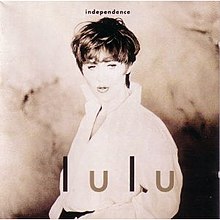
The Bee Gees were a musical group formed in 1958 by brothers Barry, Robin, and Maurice Gibb. The trio were especially successful in popular music in the late 1960s and early 1970s, and later as prominent performers in the disco music era in the mid- to late 1970s. The group sang recognisable three-part tight harmonies: Robin's clear vibrato lead vocals were a hallmark of their earlier hits, while Barry's R&B falsetto became their signature sound during the mid- to late 1970s and 1980s. The group wrote all their own original material, as well as writing and producing several major hits for other artists, and are regarded as one of the most important and influential acts in pop-music history. They have been referred to in the media as The Disco Kings, Britain's First Family of Harmony, and The Kings of Dance Music.

Maurice Ernest Gibb was a British musician. He achieved fame as a member of the pop group Bee Gees. Although his elder brother Barry Gibb and fraternal twin brother Robin Gibb were the group's main lead singers, most of their albums included at least one or two songs featuring Maurice's lead vocals, including "Lay It on Me", "Country Woman" and "On Time". The Bee Gees were one of the most successful pop-rock groups of all time.

Sir Barry Alan Crompton Gibb is a British musician, singer, songwriter and record producer. He rose to worldwide fame as a member of the Bee Gees, one of the most commercially successful groups in the history of popular music. With his younger brothers, fraternal twins Robin and Maurice Gibb, he formed a musical partnership beginning in 1955. He has lived in Britain, Australia, and the United States, holding dual UK–US citizenship, the latter since 2009.
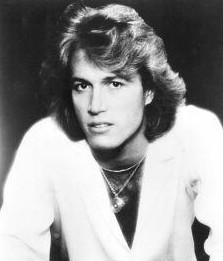
Andrew Roy Gibb was an English singer, songwriter, and actor. He was the younger brother of Barry, Robin and Maurice, who went on to form the Bee Gees.

Cucumber Castle is the seventh studio album by the Bee Gees, released in April 1970. It was produced by Barry Gibb, Maurice Gibb, and Robert Stigwood. It consists of songs from their television special of the same name, which was named after a song on their 1967 album Bee Gees' 1st. Cucumber Castle is the only Bee Gees album not to feature any recorded contributions from Robin Gibb, as he had left the group before the album was recorded.

Cary Brothers (born 1974) is an American indie rock singer-songwriter originally from Nashville, Tennessee, United States. After moving to Los Angeles and becoming a regular performer at the influential Hotel Cafe venue, Brothers first gained national attention with his song "Blue Eyes" on the Platinum-selling, Grammy-winning "Garden State" soundtrack. As an independent artist, he has since toured worldwide, released two full-length records, and become one of the most-licensed artists in film and television. In the electronic dance music world, Brothers has collaborated with Tiësto on a club remix of his song "Ride" and an original song for Tiësto's album Kaleidoscope, and he co-wrote and sang the title tracks for the Cosmic Gate releases Wake Your Mind and Start to Feel.
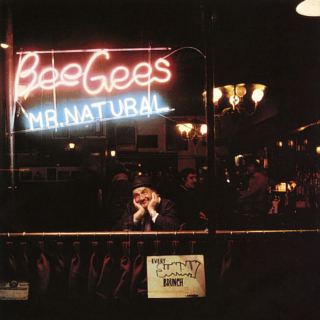
Mr. Natural is the Bee Gees' twelfth album, released in May 1974. It was the first Bee Gees release produced by Arif Mardin, who was partially responsible for launching the group's later major success with the follow-up album Main Course. The album's rhythm and blues, soul, funk and hard rock sounds initiated the group's reinvention as a disco and blue-eyed soul act, which would solidify on subsequent albums. However, Barry Gibb has said that the album was "whiter" than Main Course. The cover photograph was taken at 334 West 4th Street, Greenwich Village, New York City by Frank Moscati, which is today known as The Corner Bistro tavern.
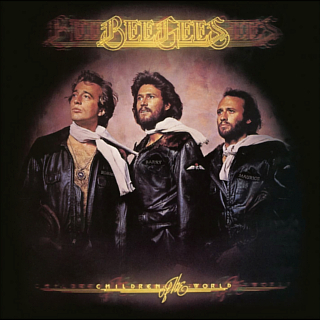
Children of the World is a 1976 album by the Bee Gees. The first single, "You Should Be Dancing", went to No. 1 in the US and Canada, and was a top ten hit in numerous other territories. It was the group's fourteenth album. The album was re-issued on CD by Reprise Records and Rhino Records in 2006. This was the first record featuring the Gibb-Galuten-Richardson production team which would have many successful collaborations in the following years.
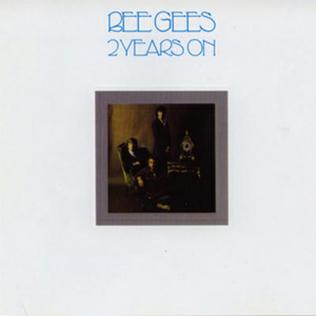
2 Years On is the eighth studio album by the Bee Gees, which reached No. 32 on the US charts. Released in 1970, the album saw the return of Robin Gibb to the group after an earlier disagreement and subsequent split following Odessa. 2 Years On was the first album with drummer Geoff Bridgford, who remained a full-time member of the group until 1972 although he was not pictured on the sleeve. The best-known track is "Lonely Days". Released as the first single by the reunited brothers, it charted high in the US, but peaked at No. 33 in the United Kingdom.

Sirocco is the second album from Australian rock band Australian Crawl. It was released in July 1981 and on 3 August, it topped the Australian charts where it remained for six weeks, the band's first of two albums to hit #1. It was released a year after their successful debut The Boys Light Up which had reached #4.
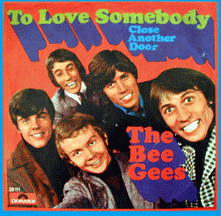
"To Love Somebody" is a song written by Barry and Robin Gibb. Produced by Robert Stigwood, it was the second single released by the Bee Gees from their international debut album, Bee Gees 1st, in 1967. The single reached No. 17 in the United States and No. 41 in the United Kingdom. The song's B-side was "Close Another Door". The single was reissued in 1980 on RSO Records with "How Can You Mend a Broken Heart" as its flipside. The song ranked at number 94 on NME magazine's "100 Best Tracks of the Sixties". It was a minor hit in the UK and France. It reached the top 20 in the US. It reached the top 10 in Canada.

Luxury of Life is the debut album by the British pop group Five Star. Though not a great success when it was first released in the summer of 1985, the album eventually peaked at number 12 in early 1986, and spent a total of 70 weeks in the UK Albums Chart. It was certified Platinum in October 1986 for sales of over 300,000 copies in the UK. It also charted in the United States, peaking at number 57 on the Billboard 200 and 14 on the R&B Albums chart.
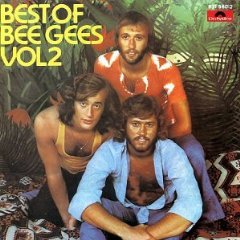
Best of Bee Gees Vol. 2 is a compilation album of hits by the Bee Gees released in 1973. The album, briefly revived on CD in the late 1980s, went out of print, but was reissued by Rhino in November 2008.
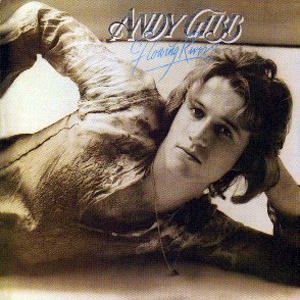
Flowing Rivers is the debut studio album by English singer-songwriter Andy Gibb. The album was produced by Albhy Galuten and Karl Richardson, with Barry Gibb on two tracks. It was released in September 1977 on RSO. Flowing Rivers was re-released by Polydor Records in 1998 in CD version.

New Routes is an album by Scottish singer Lulu recorded between 10 September and 2 October 1969 at Muscle Shoals Sound Studio, one of that facility's earliest recordings, for a 16 January 1970 release.

Nicholas J. Martinelli is an American R&B and pop record producer. During the 1980s he worked with many R&B and pop music artists, some of them based in the UK. Acts he has worked with include Loose Ends, Phyllis Hyman, Five Star, Stephanie Mills and Regina Belle.
"Rest Your Love on Me" is a country ballad performed by the Bee Gees written and sung by Barry Gibb. It was the B-side of the US No. 1 hit "Too Much Heaven". Andy Gibb recorded the song as a duet with Olivia Newton-John for his 1980 album After Dark.
"Bury Me Down By the River" is a song written by Barry and Maurice Gibb and recorded separately by the Bee Gees and P.P. Arnold. The Bee Gees' version was recorded in May 1969 at IBC Studios and released in April 1970 on the album Cucumber Castle.
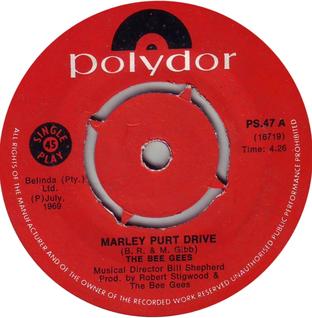
"Marley Purt Drive" is a song recorded by the Bee Gees, It was written by Barry, Robin & Maurice Gibb and released in March 1969 on the album Odessa. It was released in stereo in the United States in January and its mono version was released in the United Kingdom in March. The remastered version of this song was released on 27 February 2009 on Reprise Records.

"Independence" is a song recorded by Scottish singer and songwriter Lulu. It was released in 1993 as the first single from her eleventh album by the same name (1993), and was by many seen as the singer's comeback, after not releasing new material since 1982. The song became a hit in both Europe and the US, peaking at number 11 on the UK Singles Chart, number 34 on the Eurochart Hot 100 and number three on the US Billboard Hot Dance Club Play chart. It received remixes by Brothers In Rhythm, C.J. Mackintosh and Tony Humphries, and a music video was also produced to promote the single.
